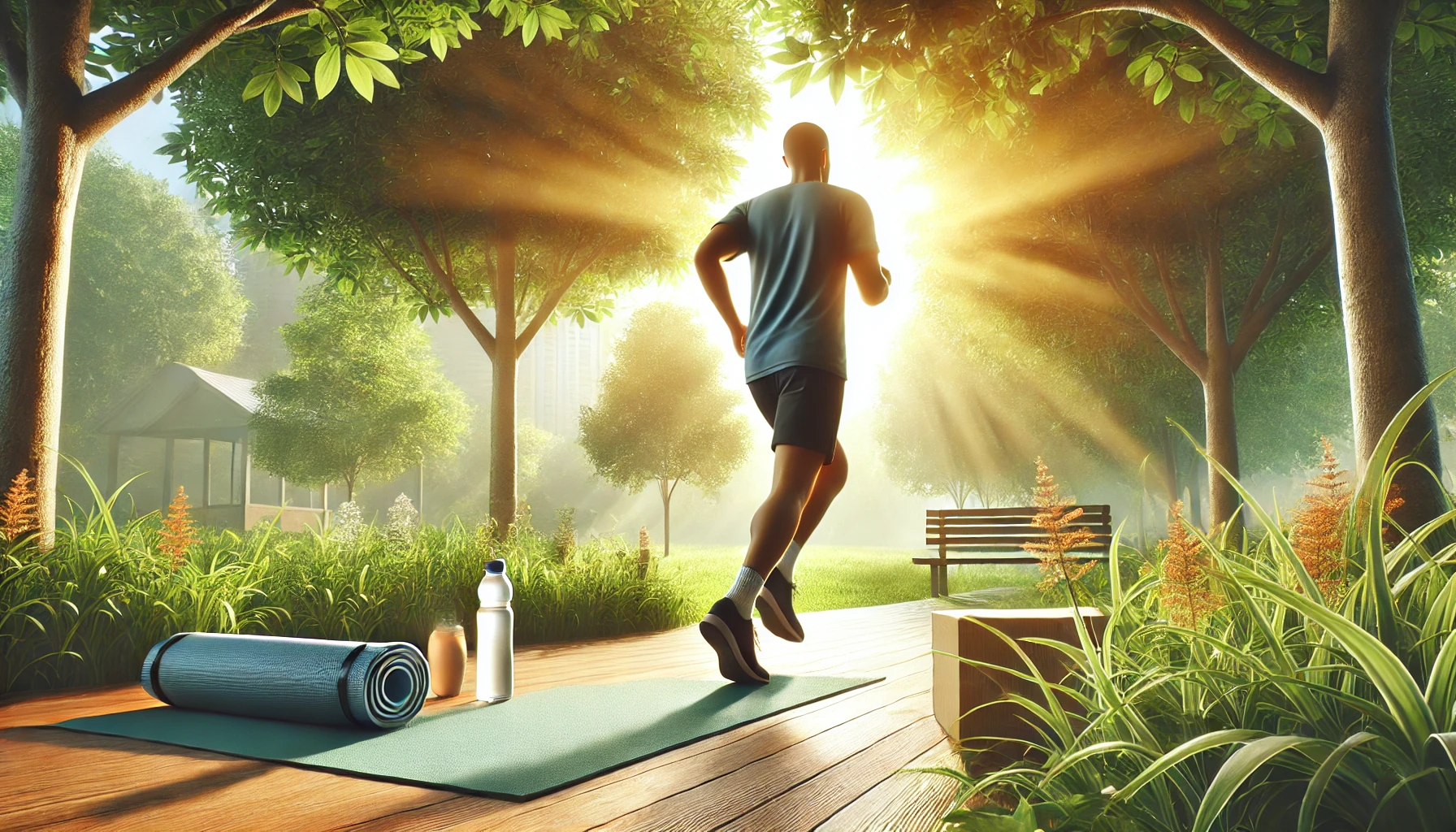Introduction
Regular physical activity is one of the most powerful and natural ways to strengthen the immune system. Exercise helps improve circulation, reduces inflammation, balances stress hormones, and enhances overall immune function.
However, there’s a delicate balance—too much exercise or improper training can actually weaken immunity, increasing the risk of infections, fatigue, and inflammation.
So how do you find the right amount and type of exercise to boost immunity without overtraining?
In this article, we’ll explore:
✔ How exercise enhances immune function.
✔ The best types of exercise for immune health.
✔ How to avoid overtraining and immune suppression.
✔ Nutritional strategies to support recovery and immunity.
Let’s get started!
1. How Exercise Strengthens the Immune System
When done in moderation, regular exercise supports the immune system in several key ways:
✔ Increases circulation – Physical activity improves blood flow, helping immune cells reach infections faster and more efficiently.
✔ Reduces chronic inflammation – Movement helps control inflammatory markers, which can weaken immunity when unchecked.
✔ Enhances white blood cell function – Exercise boosts the production of white blood cells (WBCs), the body’s first line of defense against pathogens.
✔ Regulates stress hormones – Moderate exercise lowers cortisol and adrenaline, which can suppress immunity when chronically elevated.
✔ Improves sleep quality – Restorative sleep is crucial for immune cell regeneration and tissue repair.
🔹 Fact: Studies show that people who exercise regularly have fewer colds and infections compared to those who live a sedentary lifestyle.
2. The Best Types of Exercise for Immune Health
Not all workouts have the same effect on immunity. Some exercises strengthen the immune response, while others—if done excessively—can suppress it.
Here are the best exercises to strengthen your immune system:
1. Moderate Cardio (Boosts Circulation and Immunity)
🏃♂️ Examples: Brisk walking, cycling, jogging, swimming.
⏳ Duration: 20–45 minutes, 3–5 times per week.
🔹 Why? Improves circulation, enhances lung function, and supports white blood cell activity.
🔹 Tip: Walking outdoors also increases Vitamin D exposure, which is crucial for immune function.
2. Strength Training (Supports Metabolism and Reduces Inflammation)
🏋️ Examples: Weightlifting, resistance bands, bodyweight exercises (push-ups, squats, lunges).
⏳ Duration: 2–4 sessions per week.
🔹 Why? Strengthens muscles, enhances metabolic health, and reduces chronic inflammation.
🔹 Fact: Studies show that regular strength training supports better glucose regulation, which indirectly benefits the immune system.
3. Yoga & Stretching (Reduces Stress-Related Immune Suppression)
🧘 Examples: Yoga, Pilates, Tai Chi.
⏳ Duration: 15–30 minutes daily or at least 3 times per week.
🔹 Why? Reduces cortisol (stress hormone) levels, improves flexibility, and supports nervous system balance.
🔹 Tip: Incorporating breathwork (like deep breathing or meditation) enhances immune cell production.
4. Outdoor Activities (Combining Exercise with Sunlight Exposure)
🌳 Examples: Hiking, gardening, outdoor sports.
⏳ Duration: 30–60 minutes, 2–3 times per week.
🔹 Why? Sunlight exposure increases Vitamin D, which is essential for immune function.
🔹 Fact: Research shows that Vitamin D deficiency is linked to higher susceptibility to infections.
3. How to Avoid Overtraining and Immune Suppression
While moderate exercise is beneficial, excessive workouts can suppress immune function.
🚨 Signs of Overtraining That Weaken Immunity:
⚠ Frequent colds or infections.
⚠ Chronic fatigue and prolonged muscle soreness.
⚠ Poor sleep quality and insomnia.
⚠ Increased stress, anxiety, or mood swings.
🔹 Tips to Prevent Overtraining:
✔ Alternate intense workouts with rest or light exercise.
✔ Ensure proper post-workout recovery (stretching, hydration, nutrition).
✔ Prioritize sleep and stress management.
✔ Listen to your body—if you feel drained, rest!
4. Nutrition Tips to Support Exercise and Immunity
Your diet directly affects your exercise performance, recovery, and immune health.
🥦 Best Nutrients for Immunity & Exercise Recovery:
✔ Protein – Supports muscle repair and immune cell function (eggs, lean meats, legumes).
✔ Vitamin C – Reduces inflammation and supports recovery (oranges, kiwi, bell peppers).
✔ Omega-3s – Helps control inflammation (salmon, flaxseeds, walnuts).
✔ Magnesium – Prevents muscle cramps and improves relaxation (avocados, nuts, spinach).
🚫 What to Avoid Post-Workout:
🚫 Processed foods and sugar – Can increase inflammation and slow recovery.
🚫 Alcohol – Weakens muscle recovery and suppresses immunity.
5. The Ideal Weekly Workout Plan for Immune Health
A balanced routine prevents overtraining and supports long-term immune resilience.
✔ Monday: 30-minute brisk walk + 15 minutes of bodyweight exercises.
✔ Tuesday: Yoga or stretching session.
✔ Wednesday: Strength training (weights or resistance bands).
✔ Thursday: Rest day or light activity (easy walk).
✔ Friday: 30-minute moderate cardio (cycling, swimming, or jogging).
✔ Saturday: Outdoor activity (hiking, sports, gardening).
✔ Sunday: Complete rest and recovery.
🔹 Best Practice: Always listen to your body and adjust intensity based on energy levels.
6. The Long-Term Benefits of an Active Lifestyle for Immunity
When you exercise regularly without overtraining, you’ll experience:
✔ Fewer colds and infections.
✔ Faster recovery from illnesses.
✔ Better mood and mental clarity.
✔ Reduced inflammation and a stronger metabolism.
✔ Improved sleep and energy levels.
🔹 Fact: Studies show that regular moderate exercise can enhance immune response and reduce the risk of chronic diseases.
Conclusion: Move Your Body, Strengthen Your Immune System
Exercise is one of the simplest and most effective ways to boost immunity. By maintaining a balanced workout routine, supporting your body with proper nutrition, and avoiding overtraining, you can enjoy the long-term health benefits of an active lifestyle.
Are you ready to incorporate more movement into your daily routine? Start small, stay consistent, and experience the benefits of a stronger immune system!
🚀 What type of exercise do you enjoy the most? Share your thoughts below! 👇
